As a community, Milwaukee's trying to reduce gun violence. Here's how 3 efforts are doing.
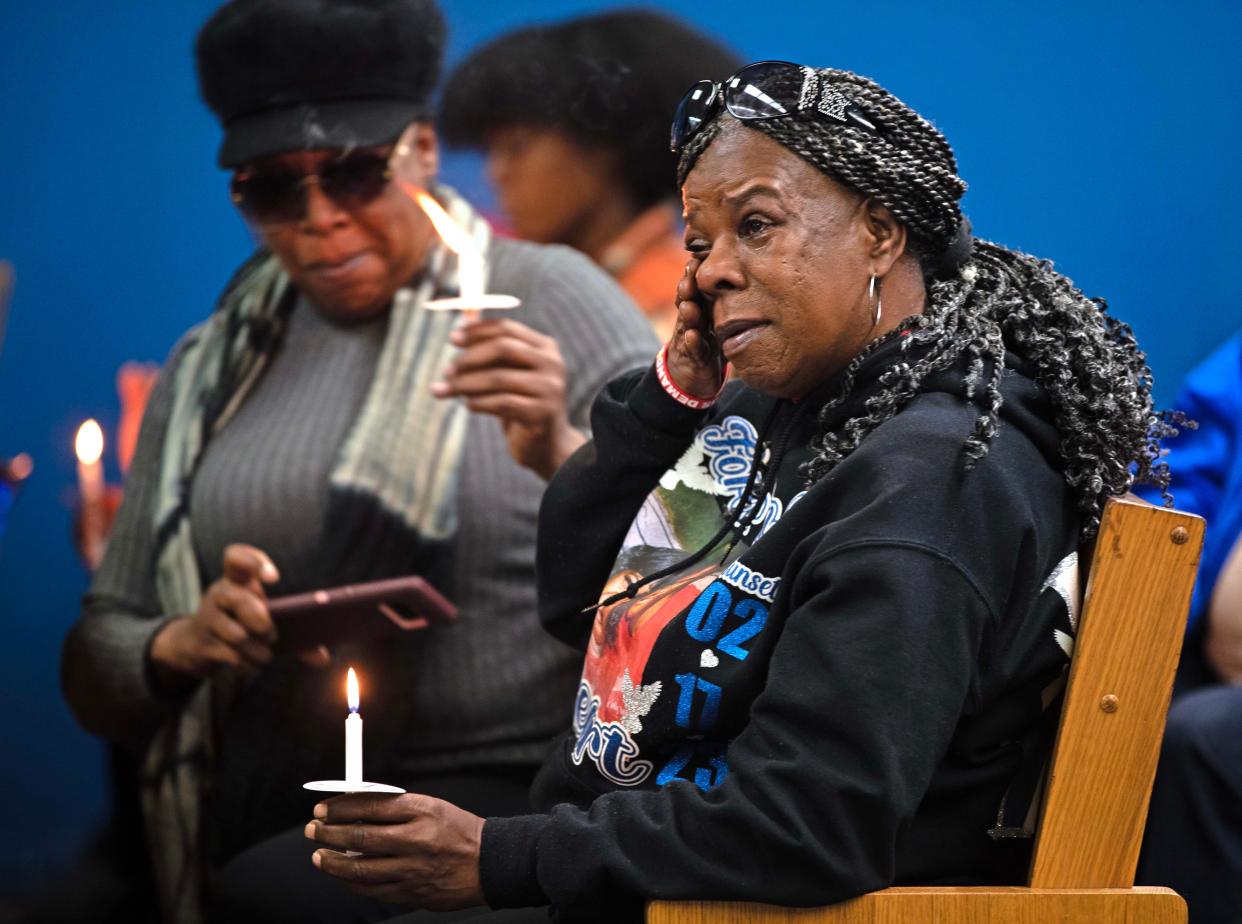
Julie Powells has attended marches to end gun violence. She's been at vigils. She goes to church and therapy regularly. She has appeared in a local TV news program about grief and loss.
It has been more than 10 months since her son, Marquise Powell, was shot and killed at age 23. And there's no end in sight for her search for peace.
“It helps me with the grieving process,” she said in early December of all her activities. “Every time I come to these events, it’s very emotional for me. I’m so overwhelmed. You have to deal with what’s going on inside you, talk to somebody, call somebody.”
Powell had dreams of going to school to become an actor. On cue, he could make himself cry, or others laugh. He idolized Ice Cube, both for his music and on-screen performances.
Powell was also a “momma’s boy,” his mother said. What she misses most about him are the hugs and kisses he would give her. For a time, she was living in Sheboygan while Powell stayed in Milwaukee. They would talk over the phone about faith and life goals. He would visit her for two weeks at a time. They'd go bowling or to the movies.
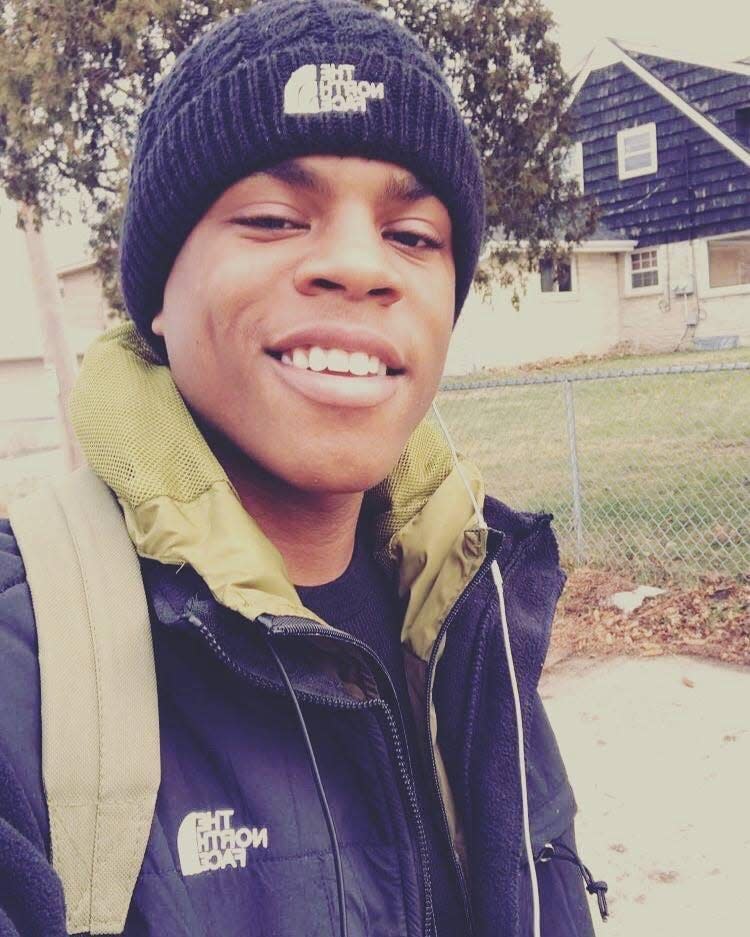
According to prosecutors, Powell was killed by an ex-girlfriend and another man. Both have pleaded not guilty and are scheduled to go to trial in January.
As the case drags on, Powells is continually challenged by a depression. She said she has come to forgive both of the accused in her son’s death. Apart from her many efforts to express her emotions, she has also tried to be a solution.
Powells, who provides mental health services at a Milwaukee group home, said she is now working at age 63 to become a certified drug counselor. She wants to train her focus on young people.
Her goal, she said, is to make an impact for disadvantaged young people early in their life, to “keep people from making the wrong decision, how to deal with that anger, how to deal with their hurt feelings” and prevent the kind of situation that happened to her son.
Speaking at a homicide vigil for the city’s victims of violence in early December, which was attended by Mayor Cavalier Johnson and Police Chief Jeffrey Norman, she expressed a simple desire:
“I just hope and pray the mayor and the chief who came here today can do a little bit more.”
Over the last several years, officials in Milwaukee have announced a range of initiatives to lower the city's gun violence — from targeted policing in areas with concentrated gun violence, to funneling federal pandemic aid to youth violence prevention, to bolstering efforts to intervene in domestic violence.
Here’s an update on how those efforts are going:
Police's summer shooting initiative
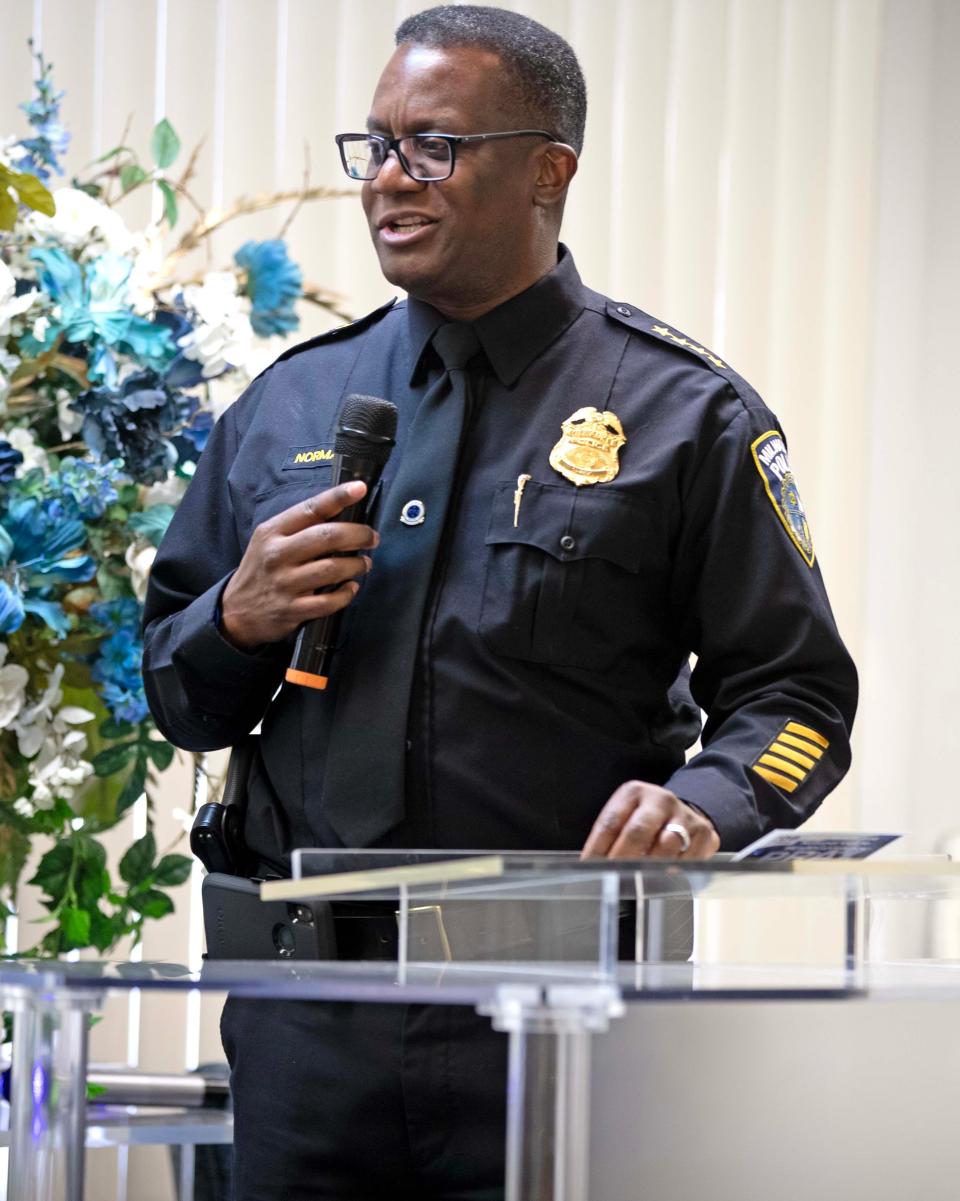
For the second year in a row, the Milwaukee Police Department brought back what it calls Operation Summer Guardian. It’s a summer initiative where special police units in neighborhoods with concentrated gun violence are dedicated to responding to Shotspotter alerts — a technology that involves a citywide system of global positioning-enabled sensors to detect outdoor gunfire within minutes or less.
Police have consistently said the goal of the program is not necessarily to increase arrests or stops but to reduce gun violence by improving police visibility and response times — and build up positive interactions with residents in the meantime.
The Police Department is working with the Medical College of Wisconsin to evaluate the program. The first pieces of information were released this year.
During a July presentation in front of the Fire and Police Commission, Constance Kostelac, the director of Milwaukee’s Homicide Review Commission and a professor at the Medical College of Wisconsin, said that no Shotspotter activations occurred during 88% of Summer Guardian deployments.
That’s a “strong indicator” of short-term impact, Kostelac said. However, the program showed no long-term statistically significant difference in the target neighborhoods.
A total of 10 arrests were made during 57 deployments in a three-month period in 2022, Kostelac said.
According to social media posts from the Police Department, deployments this year during a four-week period totaled 20 arrests and the recovery of 20 guns, two stolen cars and various amounts of illegal drugs.
“We’re making smart arrests,” Norman said. “We’re targeting where we need to be targeting.”
Expanded youth activities
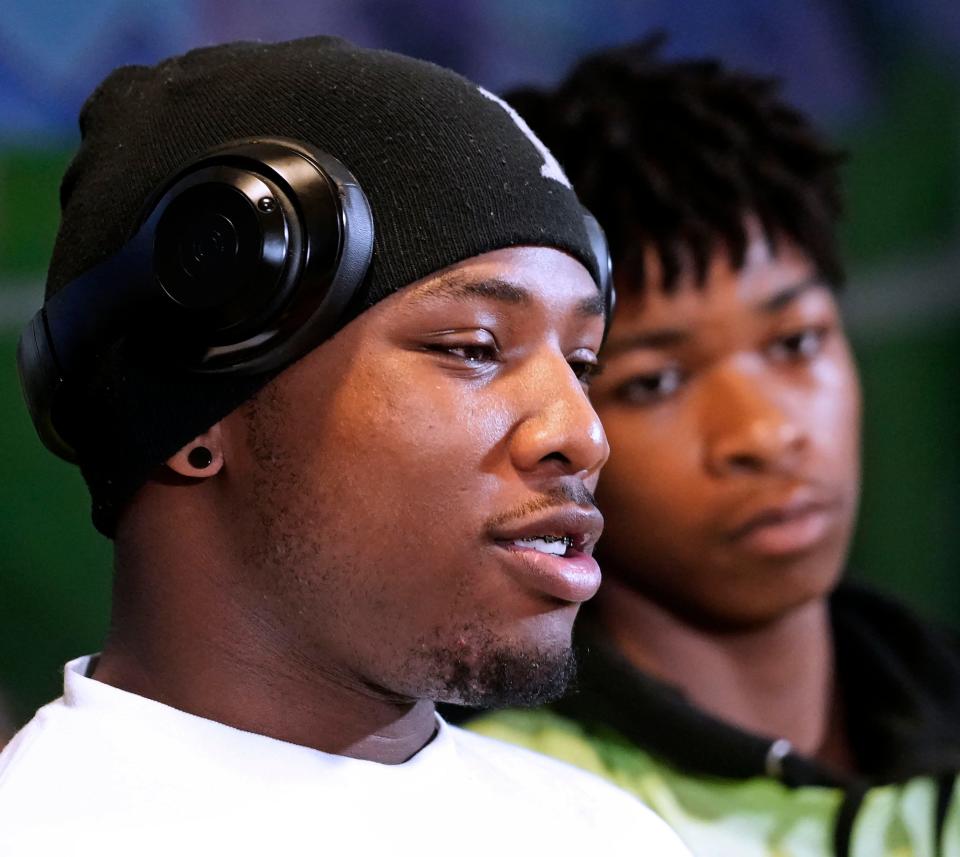
On a Friday night in December, around 70 Milwaukee teens were bused to the Pettit National Ice Center for a “teen night” as part of the Police Athletic League.
The league is one of many programs that have been created or expanded in recent months as Milwaukee received $12.65 million in federal pandemic aid that’s aimed at violence prevention. And a chunk of that is reserved for youth violence prevention by offering more after-school activities, mentorship and other opportunities.
Three teens, ages 14, 15 and 18, at the event who spoke to the Journal Sentinel said they felt safe there and had benefited from meeting and conversing with police officers who staff the events. But all said they generally don’t feel safe in Milwaukee.
“I shouldn’t have to carry mace with me as I’m trying to take the bus to work every day,” said Ayanah, 15, who hopes to become a pediatric travel nurse one day. “I should be able to go have fun at nighttime, not exactly outside, but at least walk to a place I’m going to without worrying about someone shooting me, someone running into me or someone trying to take me.”
Rolling out the windfall of federal pandemic aid has been a slow process. But Renée Logee, the executive director of United Neighborhood Centers of Milwaukee, said community groups are, or will continue to be, strengthened to serve kids better and serve more of them by the second quarter of 2024.
She said one group is increasing its youth programming by 25%. Others are upping activities around civic engagement, urban landscaping, meditation classes, athletics, mural-making and programs about healthy relationships, anti-violence and anti-drug use.
“People are rising up and utilizing those resources,” Logee said. “I do feel like we will not be letting the foot off the gas anytime soon.”
Meanwhile, David Muhammad, the deputy director for Milwaukee County’s Department of Health and Human Services, said 284 children have enrolled the county’s Credible Messenger Program, which provides mentorship and other services to at-risk youth.
Early results from the program have been promising. This year, the county also debuted a similar program aimed at girls. Next year, it will roll out another initiative targeting people between ages 14 and 24 to provide mentorship, life-skills training and travel opportunities.
“The investment in community is really what we’re trying to demonstrate,” Muhammad said.
Domestic violence interventions
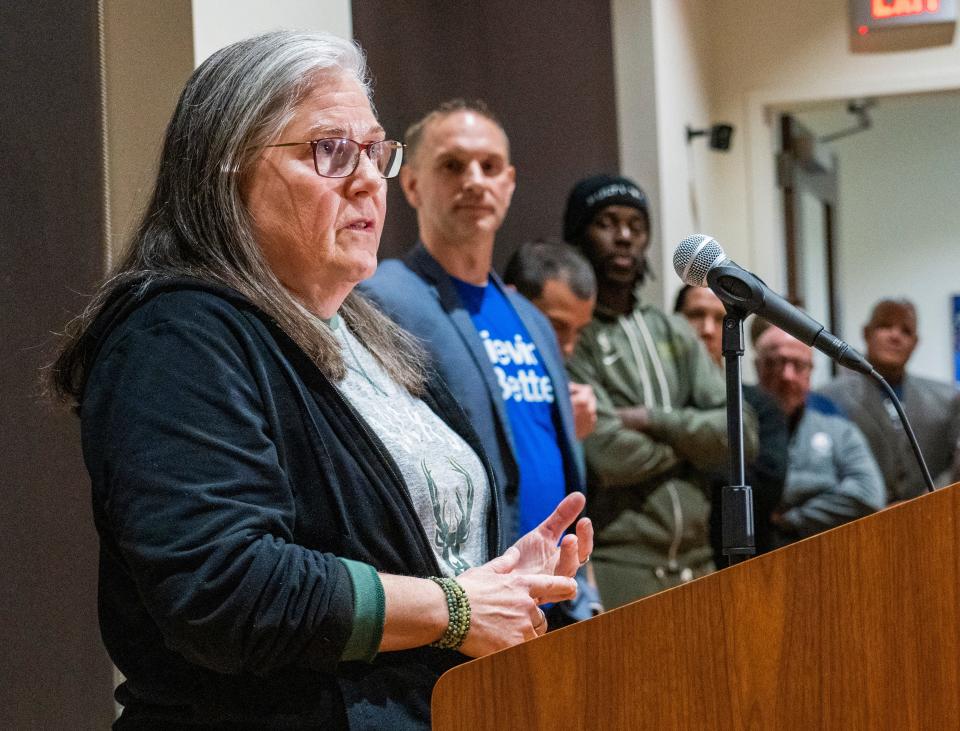
In a year when domestic violence-related homicides dropped in Milwaukee County, Carmen Pitre expressed growing confidence that service providers would continue to drive the numbers down.
Pitre is the president of the Sojourner Family Peace Center, the largest service provider for domestic violence victims in Wisconsin. She pointed to three developments this year that she expects will continue to make an impact in Milwaukee:
First, earlier this year, officials announced a state grant allowed for an expansion of the Domestic Violence High Risk Team, a highly effective domestic homicide prevention unit, which pours resources into abuse cases with the greatest potential for fatal violence if the victim isn't properly protected and the offender isn't held accountable.
That team now meets twice a week instead of once, Pitre said.
Second, a pilot program that began this year at the Milwaukee Police Department’s District Four station has received encouraging feedback, Pitre said. The program allows domestic violence victim advocates to accompany police to scenes of incidents, allowing service providers immediate access to victims to connect them with resources.
“The quicker you can emotionally be in contact with someone after a traumatic incident, the better,” Pitre said.
Third, Sojourner launched another pilot program this year using a new piece of technology that keeps “high-risk survivors” of domestic violence in easy contact with service providers and law enforcement when emergencies strike.
Pitre said survivors can volunteer to hold a device that allows them to directly contact law enforcement during an emergency and allows service providers to track their location.
In one “phenomenal” example this year, Pitre said a woman had been kidnapped by an abuser and was being held in a basement. The device allowed law enforcement to find her.
“The good news is I think strategies are working,” she said.
Contact Elliot Hughes at elliot.hughes@jrn.com or 414-704-8958. Follow him on X at @elliothughes12.
This article originally appeared on Milwaukee Journal Sentinel: Reducing Milwaukee gun violence is the goal of these programs

